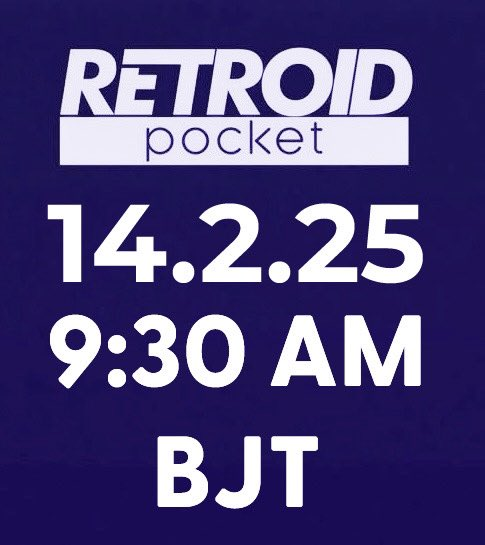I am looking forward to the new homestead. Also the new elite specs look interesting, can't wait until we hear more.
mouse
It's probably this bug: https://bugzilla.mozilla.org/show_bug.cgi?id=1955112
It's a bug specifically on Wayland.
Try grabbing the tab and moving it and letting go, you don't have to move it's tab slot.
Looking at the changes lists many Wayland patches: https://github.com/GloriousEggroll/proton-ge-custom/tree/master/patches/wine-hotfixes/pending/wine-wayland
Searching through that list for "cursor" returned 3 results.
- https://github.com/GloriousEggroll/proton-ge-custom/blob/master/patches/wine-hotfixes/pending/wine-wayland/0014-winewayland-Implement-SetCursorPos-via-pointer-lock.patch
- https://github.com/GloriousEggroll/proton-ge-custom/blob/master/patches/wine-hotfixes/pending/wine-wayland/0017-winewayland-Treat-fully-transparent-cursors-as-hidde.patch
- https://github.com/GloriousEggroll/proton-ge-custom/blob/master/patches/wine-hotfixes/pending/wine-wayland/0030-cursor-shape-v1.patch
Here's the pull requests on the WINE HQ GitLab.
From the Nobara changelog: https://nobaraproject.org/category/changelog/
plasma-discover and gnome-software have both now been replaced with flatpost. Flatpost is a new in-house developed one-stop shop for flatpaks. It is able to handle installation, removal, upgrading, and permissions of flatpaks as well as flatpak repository management. You should find it provides all of the same permission toggles as flatseal. It is a simple application built on python and gtk, and is meant to be a desktop environment agnostic solution (meaning it should run in any DE). We did this because while we only support Gnome and KDE, we understand users still want to install their own environments and will do so regardless of whether or not it’s supported. If they are going to do that, again we prefer users to install flatpaks where possible for their software needs, and not all environments have a flatpak shop. For example if I’m using hyprland or labwc, now I have a shop I can use with them: https://github.com/GloriousEggroll/flatpost. Users can still manually install plasma-discover or gnome-software if they prefer.
Unfortunately that's one area I am bad with, I tend to use reverse_proxy for most such as Baikal running with the ckulka/baikal Docker image (which runs Nginx or Apache), otherwise I only static sites.
I'd start by looking at Baikal's config for Apache and Nginx, https://sabre.io/baikal/install/ and comparing to the directives for Caddy, https://caddyserver.com/docs/caddyfile/directives and
Since it uses PHP, it will need that, https://caddyserver.com/docs/caddyfile/patterns#php
Upon my searches I came across this, it talks about running Baikal with Caddy specifically. https://github.com/caddyserver/caddy/issues/497
I hope that this provided some helpful directions.
I use Caddy for this. I'll leave links to the documentation as well as a few examples.
Here's the documentation for wildcard certs. https://caddyserver.com/docs/automatic-https#wildcard-certificates
Here's how you add DNS providers to Caddy without Docker. https://caddy.community/t/how-to-use-dns-provider-modules-in-caddy-2/8148
Here's how you do it with Docker. https://github.com/docker-library/docs/tree/master/caddy#adding-custom-caddy-modules
Look for the DNS provider in this repository first. https://github.com/caddy-dns
Here's documentation about using environment variables. https://caddyserver.com/docs/caddyfile/concepts#environment-variables
Docker
A few examples of Dockerfiles. These will build Caddy with DNS support.
DuckDNS
FROM caddy:2-builder AS builder
RUN xcaddy build --with github.com/caddy-dns/duckdns
FROM caddy:2
COPY --from=builder /usr/bin/caddy /usr/bin/caddy
Cloudflare
FROM caddy:2-builder AS builder
RUN xcaddy build --with github.com/caddy-dns/cloudflare
FROM caddy:2
COPY --from=builder /usr/bin/caddy /usr/bin/caddy
Porkbun
FROM caddy:2-builder AS builder
RUN xcaddy build --with github.com/caddy-dns/porkbun
FROM caddy:2
COPY --from=builder /usr/bin/caddy /usr/bin/caddy
Configure DNS provider
This is what to add the the Caddyfile, I've used these in the examples that follow this section. You can look at the repository for the DNS provider to see how to configure it for example.
DuckDNS
https://github.com/caddy-dns/cloudflare?tab=readme-ov-file#caddyfile-examples
tls {
dns duckdns {env.DUCKDNS_API_TOKEN}
}
CloudFlare
https://github.com/caddy-dns/cloudflare?tab=readme-ov-file#caddyfile-examples Dual-key
tls {
dns cloudflare {
zone_token {env.CF_ZONE_TOKEN}
api_token {env.CF_API_TOKEN}
}
}
Single-key
tls {
dns cloudflare {env.CF_API_TOKEN}
}
PorkBun
https://github.com/caddy-dns/porkbun?tab=readme-ov-file#config-examples Global
{
acme_dns porkbun {
api_key {env.PORKBUN_API_KEY}
api_secret_key {env.PORKBUN_API_SECRET_KEY}
}
}
or per site
tls {
dns porkbun {
api_key {env.PORKBUN_API_KEY}
api_secret_key {env.PORKBUN_API_SECRET_KEY}
}
}
Caddyfile
And finally the Caddyfile examples.
DuckDNS
Here's how you do it with DuckDNS.
*.example.org {
tls {
dns duckdns {$DUCKDNS_TOKEN}
}
@hass host home-assistant.example.org
handle @hass {
reverse_proxy home-assistant:8123
}
}
Also you can use environment variables like this.
*.{$DOMAIN} {
tls {
dns duckdns {$DUCKDNS_TOKEN}
}
@hass host home-assistant.{$DOMAIN}
handle @hass {
reverse_proxy home-assistant:8123
}
}
CloudFlare
*.{$DOMAIN} {
tls {
dns cloudflare {env.CF_API_TOKEN}
}
@hass host home-assistant.{$DOMAIN}
handle @hass {
reverse_proxy home-assistant:8123
}
}
Porkbun
*.{$DOMAIN} {
tls {
dns porkbun {
api_key {env.PORKBUN_API_KEY}
api_secret_key {env.PORKBUN_API_SECRET_KEY}
}
}
@hass host home-assistant.{$DOMAIN}
handle @hass {
reverse_proxy home-assistant:8123
}
}
Thanks! Here they are listed below.
- HOT WHEELS™ - Fun Pack
- HOT WHEELS™ - Aston Martin DBS 2010
- HOT WHEELS™ - Hotweiler™
- HOT WHEELS™ - Mad Manga™
- HOT WHEELS™ - Chevy 1956
- HOT WHEELS™ - Night Burner™
- HOT WHEELS™ - Mattel Dream Mobile™
- HOT WHEELS™ - 2-Tuff™
- HOT WHEELS™ - Christmas Pack
- HOT WHEELS™ - Thanksgiving Pack
- HOT WHEELS™ - Bye Focal™ II


So I am not entirely sure. I did find the code for it however if you want to take a look.
In Firefox it uses the variable for the neqo library, which is the the Mozilla Firefox implementation of QUIC in Rust.
Line #284: https://github.com/mozilla-firefox/firefox/blob/57e6d88cb3ad7f9777145f2d4fba11d4fc9de369/netwerk/socket/neqo_glue/src/lib.rs#L284
code:
In the neqo library it's used here: https://github.com/mozilla/neqo/blob/9e52e922343609dba5171c0adb869cff7bd8d3a0/neqo-transport/src/crypto.rs#L1594
code: